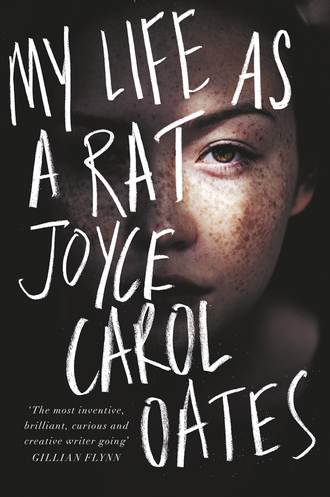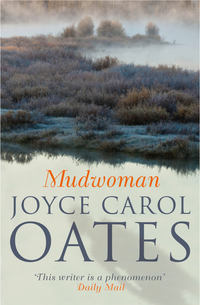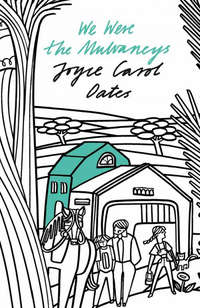
Полная версия
My Life as a Rat
The caller went on to identify the car as a mid-1980s model Chevy, dull bronze, pretty battered, rusted, and dented—“Especially, you could see that the front right fender was bent all in from where they’d hit the kid. You couldn’t miss that.”
He hadn’t gotten a good look at the boys. Just “white kids”—“maybe high school age, or a little older”—but he’d tried to memorize the license plate number: “first three digits—KR4—something like that.”
Louisville Slugger
IF THE FUCKING BAT HADN’T BEEN THERE.
Because none of it had been premeditated. Because it had just happened—the way fire just happens.
Because it had been rattling in the back of the car, for months. Why’d he carry the bat loose in the car he’d liked to say For protection.
Sort of, he meant it. But it was a kind of joke too.
Because most things, fucking things in his fucking life, were jokes. Which included the bat.
Just his old baseball bat. The label worn off, he’d had for years. Couldn’t remember when he’d played baseball last. But the bat was his—his brothers had to have their own damn bats if they had a bat at all.
Never thought about it. Not much.
Rattling in the back of the car along with some empty beer cans and other shit, he’d stopped hearing.
Except that night, one of the (drunk) guys in the back snatched it up. And outside, in the confusion, he grabbed it away from whoever it was, maybe Don Brinkhaus, excited and aroused and swinging the bat because the bat was his and the bat was fucking wonderful, the solid grip, the weight of it, soiled old black tape he’d wound around the handle how many years ago. He’d never been a great batter, but he was OK. Easily embarrassed and discouraged and fucking disgusted, missing easy pitches, striking the ball not hard enough so it popped up like a little kid might pop it, fell straight down, rolled at the first baseman’s feet … Wanting to murder any asshole who laughed at him.
But now, no. Fucking bat wasn’t missing its target now.
Black kid sprawled on the ground pleading with them to let him go, please let him go, bleeding from his nose and mouth not so hot-shit now. Flat on his back and begging. And the guys jeering, laughing. Swatting at him, kicking.
Like he’d provoked them to run into him. Dented the fender of the fucking car, because of him.
Natural in Jerr’s hands for the bat to rouse itself to life, and get away from him. Furious, fast. Like chopping wood.
The crack! of the bat. Or was it the crack! of the skull.
But without the bat, maybe not. No.
Wouldn’t have cracked the skull. And all the blood.
Without the fucking bat would’ve kicked the black kid a few more times then let him go. Seeing he wasn’t fighting back, had gone limp. Probably not able to identify them, his eyes are swollen shut. Blood all over his face. What the fuck. Nobody wanted to kill anybody, that was a fact.
That was a fact. They’d swear on the Bible.
Came to him they’d (maybe) mixed this kid up with another black kid, a bigger kid, heavier, older by a year or two. Football player—“tight end.” With the bleached-blond white girlfriend. Hanging out across the street from school. That motherfucker, they’d have meant to stomp, wipe the smirk off his fat face.
Except for the bat. Fucking bat. None of it would have happened. Or in the way it happened. You could argue it was mitigating circumstances. How the bat came to be in Jerr’s hands at just that minute.
Because it hadn’t been premeditated, bringing the bat. Just in the back of the car where it had been rolling around for months. And so, like an accident. Christ sake it was an accident.
And maybe also, could they argue they’d been drinking, and their judgment was off. Buying six-packs and nobody asking them who it was for, how old. None of it would’ve happened except for that. Which wasn’t their fault—there were adults to blame. And the car, his father had given him. Christ! He hadn’t even asked for it, he’d known better than to ask his father would’ve made him crawl, if he had. Surprising the hell out of him, just giving him the car which would have been worth something at least, a few hundred at least, on a trade-in. But he’d given Jerr the car, which put Jerr in his debt big-time. And made Jerr anxious, taking care of it. Every time he came to the house the old man would go out into the driveway and inspect the car and if he didn’t say anything that could be worse than if he did for at least, if he did, you’d know what he was thinking. And Jerome Kerrigan was always fucking thinking.
Which led to Jerr swerving the damned car off the road. Like wanting to get rid of it. A few beers, you started thinking that way. Hitting the black kid was just collateral damage. You could argue that was an accident, nobody’d known the kid was even there until they saw him. He’d been meaning just to scare the kid, make the guys laugh, impress his brother who thought he was a cool dude but the front wheels hit gravel and swerved, right front fender struck the kid and lifted him, and the God-damned bicycle leaving a dent in the fender him and Lionel would have to try to even out with their bare hands, panting and struggling to unbend it but still the dent is there. Fucking rust on their fingers.
And blood from the bat, they’d have to scrub like hell.
Chain of circumstances, accidents. Could happen to anyone.
None of it premeditated. That’s the crucial point.
Realizing then, his father had given him the fucking baseball bat. Sure. That’s who it was, had to be, making a big deal of it, bringing him to the store downtown to pick it out for his birthday: Louisville Slugger. The best.
Now you got to live up to it, kid.
The Little Sister
WAKENED BY—SOMETHING …
Not a flash of headlights on the wall of the darkened room. Not the expansion of headlights on two walls of our room, if a vehicle turned into our driveway.
So that I would think, but only later—They cut the headlights. Not wanting to wake anyone.
Still less would I think, at the age of twelve—This part of it would be premeditated. Leaving nothing to chance.
And so I saw the time: 12:25 A.M. Someone had entered the kitchen downstairs, from the rear of the house, through the garage. I did not yet know that it was Jerr and Lionel.
Though Jerr had his own place to live now often he turned up at our house. He’d brought Lionel home, but wasn’t leaving immediately. He’d dropped the others, our cousin Walt, and Don Brinkhaus, at their houses.
At this time they had not known, they would claim they’d had no idea, that Hadrian Johnson had been beaten so badly he would never regain consciousness.
Though bleeding badly from head wounds, from the blows of Jerr’s baseball bat, they would claim that, when they’d left him, Hadrian Johnson had looked as if he was all right.
This I would learn later. In time I would memorize much. Like lifting small stones, pebbles. Lifting, contemplating. Setting down again taking care to put its pebble in its precise and rightful place.
In the small room at the top of the stairs shared with my sister I lay very still hearing voices that seemed to me lowered and urgent. At first I thought one of the voices was my father’s—but the other voice was not Mom’s.
I went to the door and opened it, just slightly. Eagerly I listened. It was thrilling to me, that Katie remained asleep. That everyone else was asleep—our parents, our older sister, our brothers Les and Rick.
When Daddy was out, or my brothers, I would remain awake waiting for them, if I could keep my eyes from closing. They had no idea how I waited for them. Patiently watching for headlights to flash onto the bedroom wall. That night waiting for Jerr to bring Lionel home and hoping that they’d hang around a while in the kitchen having a beer or two as they often did.
Quietly I left my room and descended the stairs, barefoot. In my pajamas. But no one was in the kitchen.
They’d entered the kitchen, I had thought. There was a draft of cold in the air, a smell of cold, wet leaves. But then they’d gone back out into the garage, leaving the door ajar.
This door was rarely locked. Most doors of our house were rarely locked.
A few inches from the doorway I hesitated, listening. Until now I was not altogether certain that it was Jerr and Lionel who’d come into the house but now I heard their voices which were lowered, urgent. Often I overheard my brothers talking together, their speech was fascinating to me. Yet more, my father’s speech was fascinating to me. The language of men and boys— rarely was it directed toward me, I could be only an eavesdropper. While there was never any ambiguity about whether my mother was addressing me.
My brothers were aroused, excited. I could hear only isolated words. Fuck, shit. Keep it down!
My brothers never caught me eavesdropping, so little notice did they take of me.
Then, I heard the outdoor faucet being turned on. Were my brothers doing something with the hose?—washing the car?
Through the crack in the doorway I saw them squatting close together just outside the garage where the water from the hose would soak into the soil, not accumulate on the garage floor. There was a light—an overhead light in the garage—a bare bulb, harsh and coated in grime—so that I could see, just barely, that they were washing something: a baseball bat.
Had to be Jerr’s bat he carried in his car “for protection.” He and Lionel had rolled up their sleeves to wash the bat, and to wash their hands and forearms, vigorously.
They’d brought out soap from the house. Bar of strong-smelling soap on the kitchen sink that mostly just our father used, wiping his hands on wads of paper towels.
My brothers were laughing, nervously. There was something very wrong but I felt an impulse to laugh too. They were only about ten feet away, for I was seeing them at an angle. Thinking They won’t like this. Being spied on. No.
Still, I remained where I was. Staring. (Maybe) memorizing. Not for a long time would I learn that my brothers were deliberating what to do with the bloodstained bat during these minutes. The murder weapon it would be called one day.
They were sober now, they’d have said. Stone-cold sober.
Fucking totally sober.
Not really thinking clearly but they knew they had to get rid of the bat, fast. Considered throwing it into the river—but what if it floated? Even weighed down, a wooden bat might somehow work loose and the river would be the first place South Niagara cops would look for a weapon. Nor could they burn it—(would a bat burn? The smoke would be detected). Not a great idea to hide it in the trash, even somebody else’s trash can on the street and so finally they decided to bury it on the riverbank, in the underbrush. A few hundred yards from the house. There was litter on the riverbank, some of this was compost from Mom’s garden. This was a better idea, they thought, than driving somewhere. They’d had enough of the car, for the night.
They’d managed to lessen the dents in the fender. Struggling, with bare hands. Panting, cursing. Next day, in daylight, on the curb by his rented place Jerr would take a hammer and un-bend it more, if he remembered.
In fact, the dents and scratches and (even) blood-smears on the front of the Chevrolet still registered in the name of Jerome Kerrigan would be evident when it was closely examined by police investigators. Like the clothes, socks, shoes my brothers would try to launder that night.
Like the bat, that could not be scrubbed clean by my brothers for its minute cracks and indentations would harbor traces of Hadrian Johnson’s blood, unmistakably.
Burying the bat in the underbrush, near Mom’s compost—that seemed like a practical idea. I saw my brothers wrap the wetted bat in a piece of burlap and I saw them leave the garage but I could not observe them after this, only to understand that they weren’t going far, into our backyard it seemed, or a little farther, on foot.
I was mystified. I had no idea what they were doing. I guessed they might be drunk. Maybe it was some kind of joke.
I went upstairs, back to bed. But I couldn’t sleep.
AND THEN ABOUT A HALF HOUR LATER I HEARD THEM RE-ENTER the house. The kitchen. Heard the refrigerator door being (quietly) opened and shut. The sound of beer cans being opened.
Almost, I could hear voices. Soft laughter.
Jes-sus.
Fucking Chri-ist!
I was sleepless, and I was curious. I was thinking—Nothing is different tonight.
Left my room to join them. Their tomboy kid-sister, they favored over Katie and (prissy, bossy) Miriam.
It was so, I adored my big brothers and basked in the glow of even their careless attention. And they loved me, I believed. I’d always believed.
Taking note of me, sometimes. Tousling my hair as you might tousle the hair of a dog. Hey kid. How’re you doing, Vi’let Rue?
In a family there are allies, and there are adversaries. It seemed to me that my brothers and I were on our daddy’s side, and my sisters were on my mother’s side.
Wanting to think this. In my naivete.
Because, really I wasn’t a female just yet. Lean-hipped as a guy, flat-chested, hard little muscles in legs, arms, shoulders—my brothers had to be impressed, I could run as fast as most boys my age, rarely cried or complained, wasn’t fussy or squeamish like other girls. If a spider darted across a wall, or a garter snake slithered across pavement, I didn’t shriek and run like another girl.
Why was I proud of this? I was.
Walking into the kitchen as if I’d only now been wakened. Daringly said, “Hey guys! Where’ve you been so late?”
They stared at me in my pajamas as if for a shivery moment they didn’t know who the hell I was. As if they didn’t know what to do about me.
Both my brothers were drinking beer from cans, thirstily. Breathing through their mouths as if they’d been running. I felt their excitement, I saw the fatigue in their faces and yet something raw, aroused. Unzipped, their jackets were wet in front. They’d been vigorously washing, scrubbing. Their shoes were wet, dark-stained. The cuffs of their trousers. Lionel’s big-jawed face looked puffy; a small cut gleamed beneath his right eye. Jerr was rubbing the knuckles of his right hand as if in pain, but a pleasurable pain. He’d taken time to splash water on his flushed face, dampen his long, lank, sand-colored hair and sweep it back from his forehead. Like Lionel’s skin Jerr’s skin was blemished but he had a brutal handsome face. He had Daddy’s young face.
With a tight smile Jerr said, “Over at the Falls. We ran into some sons of bitches. But we’re okay, see? Don’t tell Mom.”
Lionel said, “Yeah, Vi’let. Don’t tell Mom, or—him.”
Him. We knew what him meant.
No need to warn me against telling Daddy. None of us would ever have ratted on one another to our father. Even if we were furious at one another, or disgusted, we wouldn’t. That would be a betrayal so profound and so cruel as to be unforgivable for Daddy’s punishment would be swift and pitiless and for a certain space of time Daddy would withhold his love from the one he’d punished.
I asked who it was they’d been fighting. How badly I wanted to know their secrets. To be like a brother to them, and not just a sister.
Though I knew it was futile. They would shrug as they always did when I asked pushy questions. Jerr said, lowering his voice, “You got to promise you won’t say anything, Vi’let. Okay?”
I shrugged and laughed. I was feeling wild! Asking, could I have a taste of their beer?
They looked surprised. Had I surprised them?
Lionel handed me his can, which was still cold. It turned out not to be beer but Daddy’s favorite, Dark Horse Black Ale. The taste was repulsive to me, even the smell, but I was determined to persevere in trying to like it, to see why my brothers and my father liked the dark ale so much, until one day (I was sure) I would like it just fine. I swallowed a mouthful. I was choking, liquid stung in my nose, the guys laughed at me, but not meanly. I managed to say, “I promise.”
The Promise
BY MONDAY NEWS OF THE “SAVAGE BEATING” OF HADRIAN Johnson spread through South Niagara. Even in middle school no one was talking about much else. I heard, and I knew.
An African American boy, basketball player and honors student at the high school. Beaten and left unconscious at a roadside. In critical condition in intensive care at South Niagara General Hospital …
Our teachers were looking grim, cautious. You could see them speaking together urgently, in the halls. But not to us.
Better to say nothing. Until all the facts are known.
I was frightened for my brothers, I was in dread of their being arrested. I would tell no one what I knew.
But already South Niagara police were making inquiries about my brothers, my cousin Walt, and Don Brinkhaus who was, like Jerr, no longer in school. Someone had provided them with the first three digits of the Chevrolet’s license plate and a partial description of the car which was traced to our father.
No possible way that Jerome Kerrigan could deny that he’d given the car to his oldest son Jerome Jr., since any number of people knew this; but there was the off chance, Daddy probably told himself, and the police, that the Chevrolet had been stolen and whatever had happened, his sons were not to blame … For police officers had allowed Daddy to think initially that the situation was just an accident, a hit-and-run.
Damn kids lost it and panicked.
Both my brothers were picked up by police officers and brought to headquarters for questioning. Jerr, just as he was arriving late to work, groggy and distracted, in the Chevrolet with the dented front fender; Lionel at school, disheveled and anxious and determined to behave as if nothing was wrong. We would learn later that Daddy met Jerr and Lionel at the police precinct in the company of the very lawyer who’d so successfully defended the boys against charges of assault against Liza Deaver.
At home our mother was preoccupied, nervous. Several times she hurried to answer the phone, taking it into a room where she could speak privately. By suppertime when Lionel and Daddy weren’t back I thought it would be expected of me to ask where they were? Was something wrong?—but my mother turned away as if she hadn’t heard.
Where was Daddy, and where was Lionel?—my sisters, my brothers Les and Rick seemed not to know.
In silence we sat with our mother to watch the local 6:00 P.M. news. The lead story was of a deadly attack on a local teenager by yet-unidentified assailants.
The victim was Hadrian Johnson, seventeen. Popular basketball player and honors student, South Niagara High. Beaten, critical injuries, witness driving along Delahunt Road has allegedly reported “four or five white boys …”
A likeness of Hadrian Johnson filled the screen, the photo that would be published with his obituary: young-looking, boyish, sweet smile, gat-teeth.
Our mother was moaning softly to herself. She’d been in an agitated state since we’d come home from school and even now the telephone was ringing, she didn’t seem to hear.
My sisters Miriam and Katie, my brothers Les and Rick, remained staring numbly at the TV screen though an advertisement had come on. They were quieter than I had ever seen them. Les said he knew Hadrian Johnson—sort of. Katie said she knew his sister Louise. Miriam, who never dared smoke at home, fumbled for cigarettes in a pocket, lit one with trembling hands and our staring blinking benumbed mother paid not the slightest heed.
How much they all knew, or had guessed, I did not know.
I did not understand how this terrible news could be related to my brothers. There was something I was forgetting—the baseball bat? In my confusion it seemed to me that Hadrian Johnson must have been beaten by the same persons who’d fought with my brothers—sons of bitches at the Falls.
Niagara Falls was seven miles away. This beating had been here in South Niagara, on Delahunt Road.
There were long-standing rivalries between the high school sports teams. Sometimes these spilled over into acts of vandalism, threats, fights. Beatings.
That must have been it, I thought. Guys from Niagara Falls, invading South Niagara. Often there were attacks of graffiti on the South Niagara high school walls, obscene words and drawings after a weekend.
From what my brothers had told me it sounded as if they’d been at the Falls and had been fighting there. Was it possible, I’d heard wrong?
I won’t tell Dad. I won’t tell anyone. I promise!
In the aftermath of the TV news our mother stood slowly, pushing herself up from the couch. With the stiff dignity of one in great pain who is resolved not to show it she made her way out of the room. We saw her lips moving wordlessly as if she were praying or arguing with someone. Her eyes had become glazed, as if she were staring at something pressing too close to her face, she could not get into focus.
She would hide away in the house, in this benumbed state. She would hide like a wounded creature. As after what she called the trouble with the Deaver girl for weeks she’d been reluctant to leave the house knowing that she had to encounter friends, acquaintances, neighbors eager to commiserate with her about the terrible injustice to which the Kerrigan boys had been subjected …
For it was not always clear, our mother knew: the distinction between commiseration and gloating.
Eventually, the Deaver girl was forgotten. Or people ceased speaking of her to Lula Kerrigan.
From that time onward, we noticed that Mom was becoming more religious. If that’s what it was—“religious.”
At church she sat stiffly at attention. You would think that her mind was elsewhere, her expression was so vacant. Yet, she would suddenly cover her face with her hands as if overcome with emotion. As the mass was celebrated by slow painstaking degrees, as the priest lifted the small pale wafer in his hands to bless it, to transform it into the body and blood of Jesus Christ, the ringing of the little silver bell seemed to prompt our mother to such behavior, mortifying to those of us who had to crowd into the pew with her—in recent years just the younger children, and Miriam.
It was rare that Daddy came to mass with Mom. Rarer still that Jerr or Lionel came. But Les, sometimes. And Katie, and Rick. And Violet Rue who was usually squeezed between Katie and Mom, a fidgety child, easily bored.
Violet Rue hated church. Oh but she feared church—the sharp-eyed God who dwelt inside the church, and who knew her innermost heart.
Sometimes, when Mom lowered her hands from her face her eyes were brimming with tears.
Tears of hurt, or fear?—triumph? Vindication? You could not say, you dared not look at the shining face.
Making her way to the communion rail then, swaying like a drunken woman, oblivious of her children. She was in the presence of God, she had nothing to do with them at this moment.
A mother’s public behavior can be a source of great mortification to her children, especially her daughters. (As our father’s never was.) (Maybe because we saw Mom much more frequently in public places than we saw Dad.) The red-lipstick mouth that stood out like a cutout mouth in her pale, fleshy face, the thin-plucked eyebrows that would never grow back, white vein-raddled bare legs in summer and spreading hips, hair beginning to grow gray in swatches—all these were shameful to sharp pitiless eyes. And the exasperating precision with which Mom parked her car, which required numerous attempts. The muffled exclamations, choked-back sobs.







